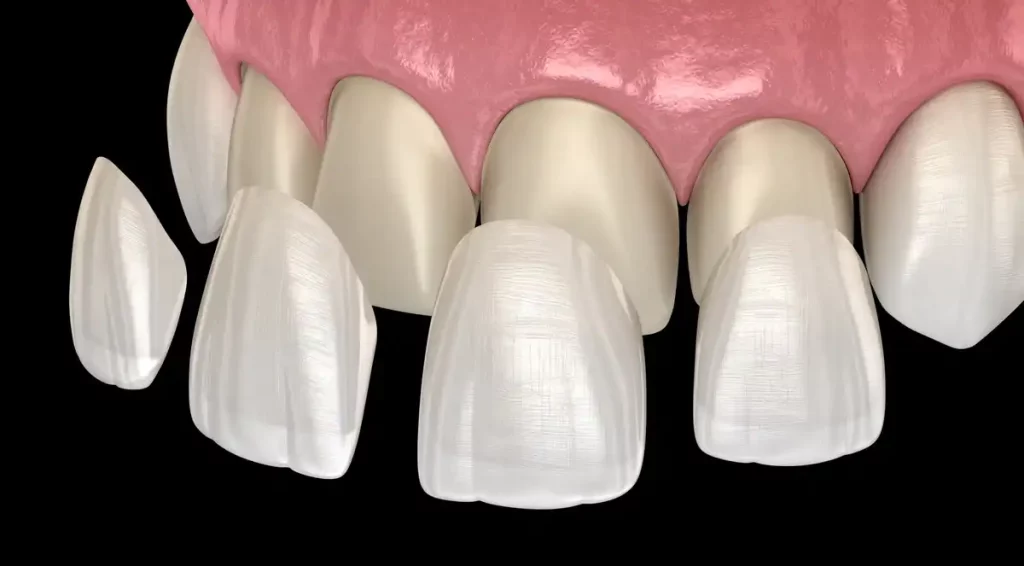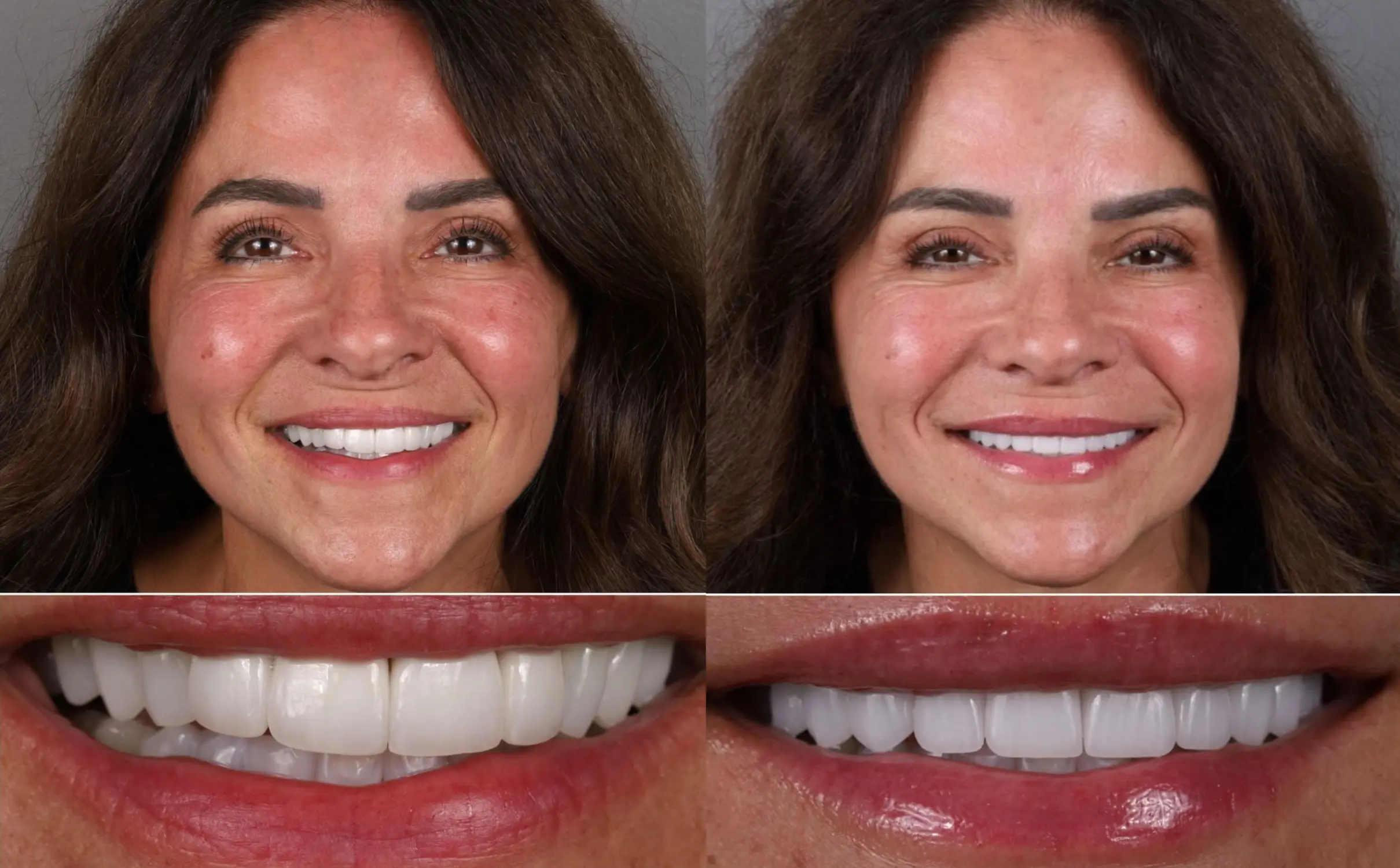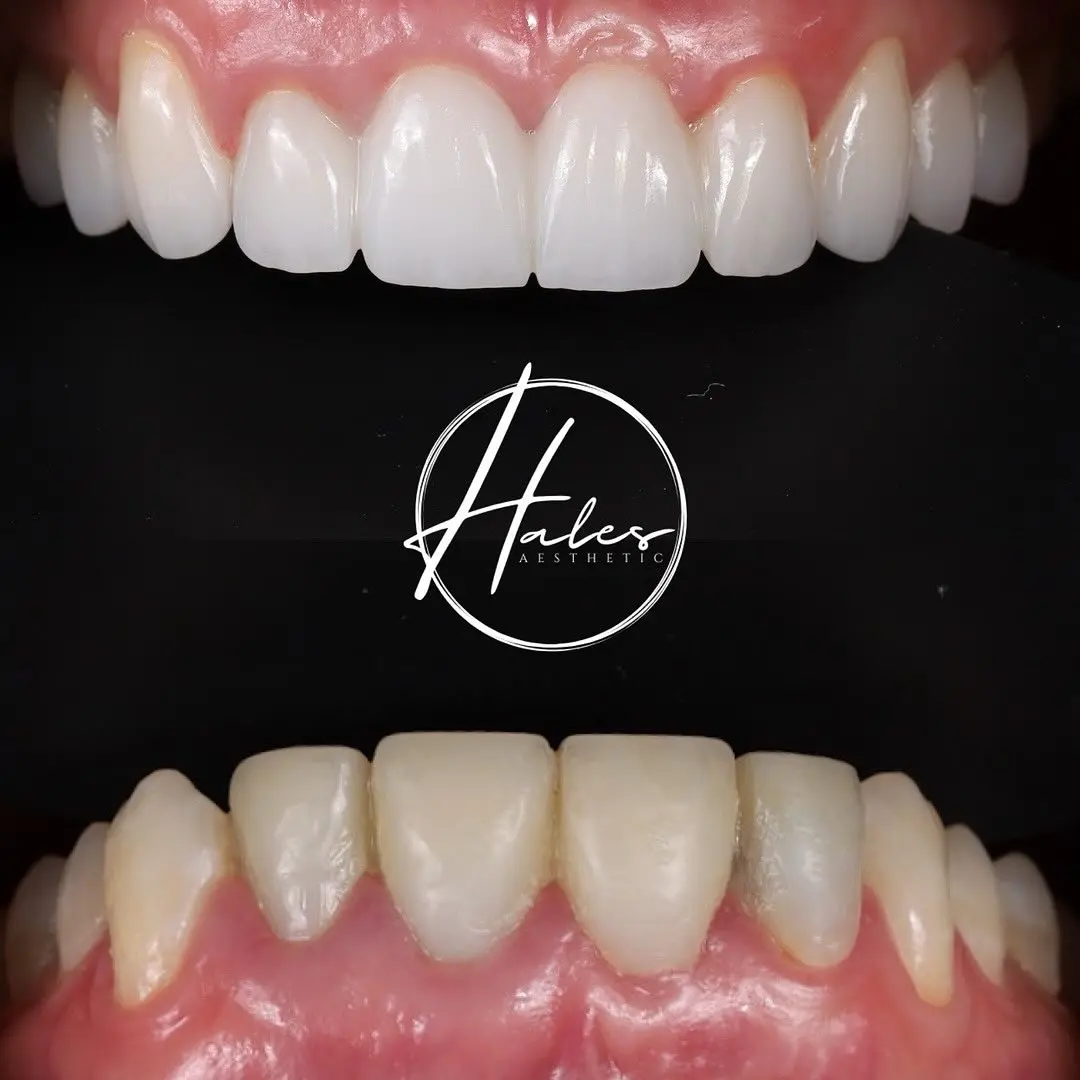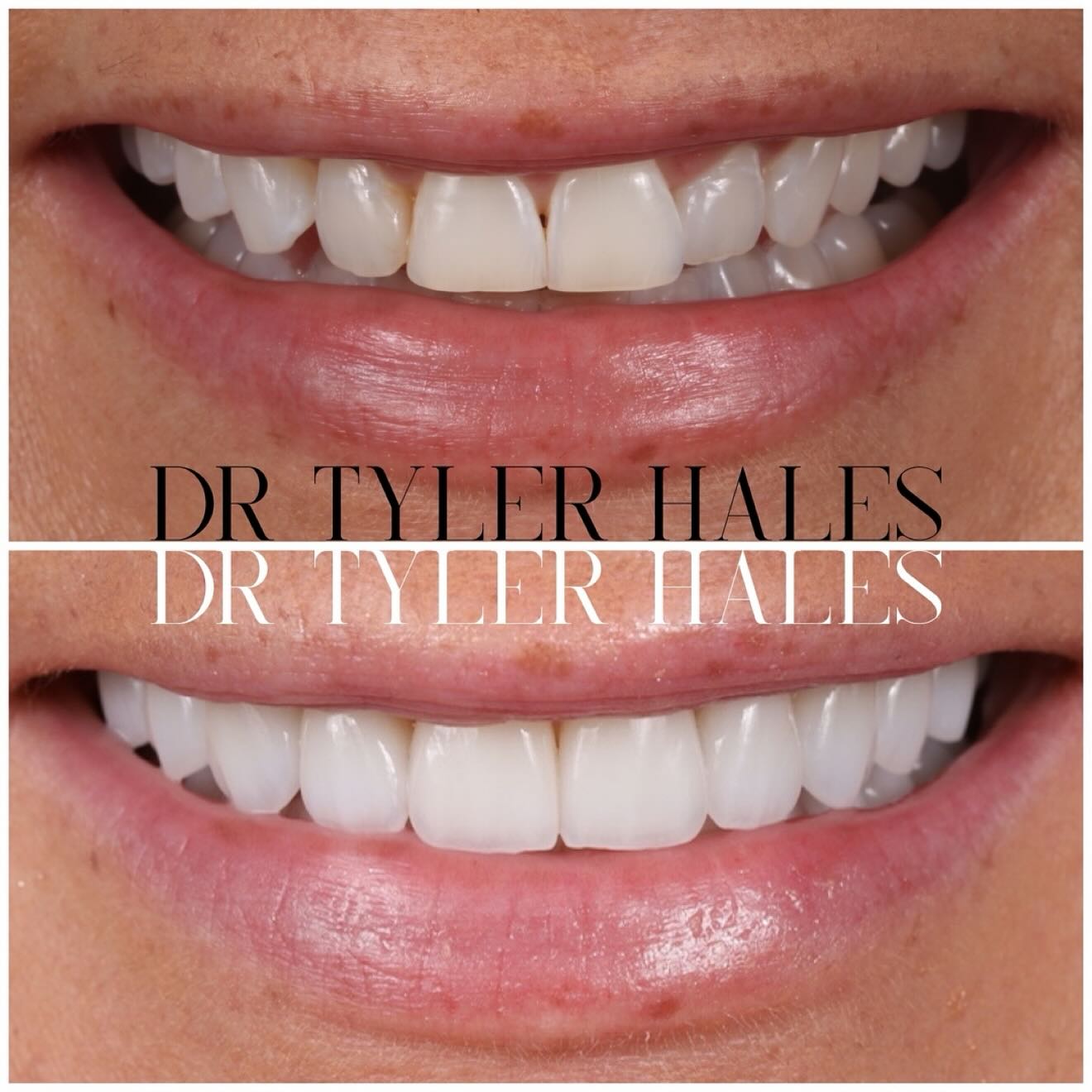What are Veneers?
A bright, confident smile can leave a lasting impression, and veneers are one of the secret weapons behind many of those picture-perfect grins. They are becoming increasingly popular to address cosmetic and restorative problems, but what exactly are veneers, you may be asking? We’ll explain their composition, the different types available, and more. So, if you’ve ever wondered about getting a flawless, Hollywood-worthy smile, read on to uncover the transformative potential of veneers.

What are veneers made of?
Dental veneers, typically made from materials like composite resin or porcelain, are custom, thin shells designed to cover the front surface of teeth. These veneers offer an excellent solution to various cosmetic dental concerns, such as stained teeth, discoloration, a chipped tooth, and gaps, while still ensuring a natural-looking smile. They are customized to match the shape of your teeth and securely bonded to your tooth’s original enamel during in-office procedures. This results in an improved appearance and provides strength and resilience comparable to natural tooth enamel.
How do veneers work?
Veneers work by covering the front surface of your teeth to improve their appearance. As we mentioned earlier, they can address a range of cosmetic issues, such as staining, discoloration, chipping, gaps, and missing teeth. They also appear as your natural teeth to give you that perfect smile that is not too perfect.
Dr. Hales has all his patients do a veneer test drive at Hales Aesthetics. The process is painless and non-invasive, as Dr. Hales crafts the “try on” veneers on top of your teeth. This temporary solution allows you to experience how the veneers will look and feel in your mouth, giving you the chance to test-drive your dream smile before making a final decision. The entire procedure typically takes around 45 minutes, and after the test drive, the temporary veneers can be easily removed in about 2 hours.

Who needs dental veneers?
Veneers are frequently recommended to individuals seeking cosmetic dental enhancements. They serve as a versatile solution for various concerns, including stubborn teeth staining, chips or cracks, and closing undesirable gaps between teeth.
They are custom-made to effectively address a range of dental issues, such as discoloration stemming from root canal treatment, tetracycline or drug stains, excessive fluoride exposure, or large resin fillings. They also prove valuable for restoring teeth that are worn down, chipped, broken, misaligned, uneven, or exhibit irregular shapes. Furthermore, they offer a practical method for closing gaps between teeth, making them a premium option for individuals seeking not only aesthetic improvements but also a boost in confidence and overall smile enhancement.
Types of Veneers
There are 4 types of veneers, and each is different in purpose and procedure that is done by a skilled cosmetic dentist.
Composite veneers
Composite veneers are a practical solution for addressing minor dental concerns, such as repairing a cracked tooth or closing a small gap between your teeth. The process involves your dentist applying a composite resin, which consists of a blend of plastic and ceramic materials, directly onto your teeth. What’s particularly convenient is that, in many instances, the entire treatment can be completed in just a single visit to the dentist’s office. Consequently, composite veneers are one of the most frequently chosen treatment options for these dental issues.
Porcelain veneers
Porcelain veneers offer superior durability and a natural appearance. They require multiple dental visits but provide long-lasting results. Porcelain veneers are fantastic at warding off stains, far superior to their resin counterparts. They mimic the natural teeth’s light-reflecting properties beautifully. During the procedure, your dentist will gently remove a small amount of enamel from your teeth and meticulously customize the veneers to fit them snugly. This enamel preparation creates a textured surface on your teeth, ensuring a secure and long-lasting bond with the veneers.
No-prep veneers
Unlike the other veneer options, no-prep veneers don’t involve touching your teeth. They are more suitable for those with small teeth and spacing between them but want more natural-looking teeth size.
Minimal prep veneers
Minimal prep veneers are designed to be incredibly gentle on your enamel, making them an excellent choice for folks who prioritize preserving their natural tooth structure. While these veneers involve significantly less enamel removal than other options, it’s important to note that some enamel is still gently shaped to accommodate them.
This treatment proves particularly effective in addressing minor gaps in your teeth. To determine if minimal-prep veneers are the ideal solution for your dental needs, having a conversation with your dentist is smart. They can assess your specific situation and provide personalized guidance on the best way forward.
Who Gets Veneers?
Now you may be asking who gets veneers? Anyone who wants to improve their smile can get veneers. We see patients as young as 21, up to 70, and all in between. But for the most part, it comes down to having problems such as a chipped tooth, stained teeth, discoloration, and an uneven smile they are not confident with.
Veneers: Before and After
Before getting veneers, it’s essential to have a consultation with a cosmetic dentist. During this appointment, you’ll discuss your goals and expectations with them, and they will evaluate your oral health to determine if veneers are suitable for you. Afterward, you’ll have impressions taken to create custom veneers.


How many veneers can be applied?
The number of veneers you need depends on your dental needs and the look you want. Some people choose to get veneers for a single tooth, while others opt for a full set to achieve a uniform smile. We typically do 10 veneers, but to help you get an idea, we wrote a blog post about how you can tell using your camera!

How Long Do Veneers Last?
Veneers can last a long time with proper care. On average, they can last anywhere from 10 to 20 years and beyond. However, their longevity depends on factors such as oral hygiene practices and dietary habits. Once veneers are applied, they’re there to stay; there’s no turning back. They become an integral part of your pearly whites.
Costs
The cost of veneers varies depending on factors like the type of veneers you want to get and the number of teeth being treated. Discussing the cost and payment options with your dentist during your consultation is important.

Conclusion
In conclusion, veneers are a popular cosmetic dental treatment that can transform your smile by addressing various aesthetic concerns. Whether you opt for composite or porcelain veneers, they can provide you with a confident and beautiful smile. If you’re considering veneers, it’s important to consult with a qualified dentist to determine the best approach for your specific needs.
Consult With Dr. Hales Today
Finding a trusted partner by your side can make all the difference when it comes to veneers.
Dr. Hales’s commitment to artistry, precision, and authenticity ensures that your veneer journey transcends mere enhancement, offering you a radiant, natural smile that reflects your uniqueness.
You can trust that your veneer journey with Dr. Hales at Hales Aesthetic is more than just a procedure—it’s a personalized experience crafted to align with your aspirations and elevate your confidence. Take the first step towards attaining the natural-looking veneers you’ve envisioned by scheduling a free consultation with Hales Aesthetic today.





